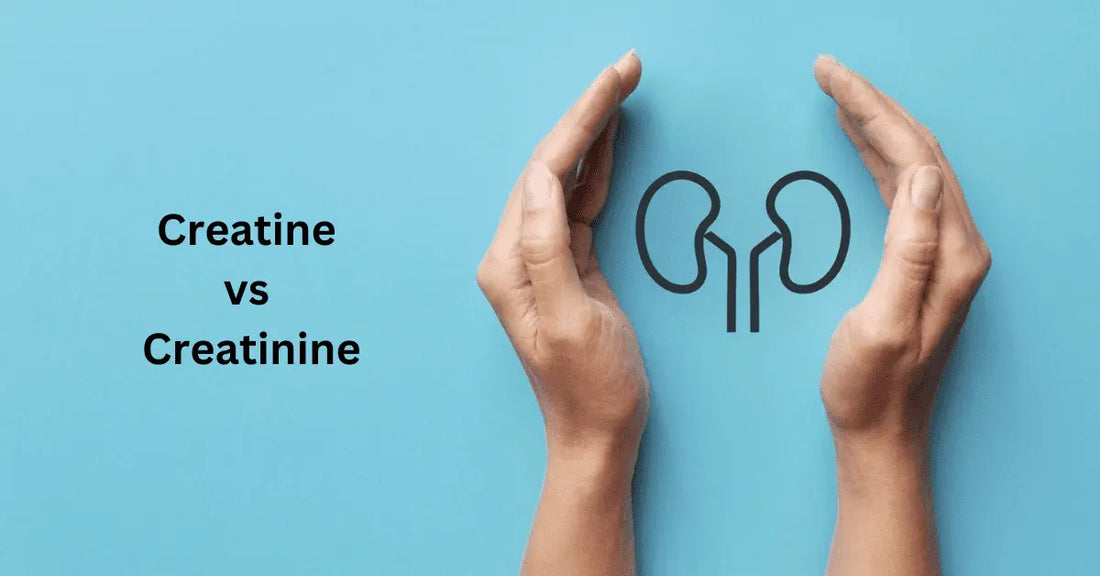Creatine and creatinine are two words that are often used interchangeably, but are they the same? While both are related to muscle health and are produced by the body, they have different functions and play different roles in the body. In this blog post, we'll explore the differences between creatine and creatinine, their functions, and why they are important for overall health.
Understanding Creatine and Creatinine
Creatine and creatinine are both organic compounds that are produced by the body. Creatine is produced by the liver, pancreas, and kidneys, and is transported to muscles through the bloodstream. Once in the muscles, creatine is converted into phosphocreatine, which is used as an energy source during physical activity. Creatinine, on the other hand, is a waste product that is produced by the muscles and is filtered out of the body by the kidneys.
Differences between Creatine and Creatinine
The main difference between creatine and creatinine is their function in the body. Creatine is used as a source of energy for the muscles, while creatinine is a waste product that is filtered out of the body. Creatinine levels in the blood can be used to measure kidney function, while creatine levels can be used to determine muscle health.
Functions of Creatine and Creatinine
Creatine is primarily used as a source of energy for the muscles. When the muscles need energy during physical activity, phosphocreatine is broken down into creatine and phosphate, releasing energy that the muscles can use. Creatinine, on the other hand, is a waste product that is filtered out of the body by the kidneys. Creatinine levels in the blood can be used to measure kidney function, as high levels can indicate kidney damage or disease.
Importance of Creatine and Creatinine for Health
Both creatine and creatinine play important roles in overall health. Creatine is important for muscle health and physical performance, while creatinine levels can be used to monitor kidney function. It's important to maintain healthy levels of both compounds in the body, as imbalances can lead to health problems.
Conclusion
While creatine and creatinine are related compounds produced by the body, they have different functions and play different roles in the body. Creatine is primarily used as a source of energy for the muscles, while creatinine is a waste product that is filtered out of the body. Both compounds are important for overall health, and it's important to maintain healthy levels of both in the body.
FAQs
Does taking creatine increase creatinine levels?
Yes, taking creatine supplements can increase creatinine levels in the blood.
Does taking creatine increase creatinine levels in urine?
Yes, taking creatine supplements can increase creatinine levels in the urine.
How much can creatine raise creatinine levels?
The extent to which creatine raises creatinine levels can vary depending on a person's physiology and the dosage of creatine they take.
What is the relationship between creatine and creatinine?
Creatine is converted into creatinine in the body, and high levels of creatinine can indicate problems with kidney function.
Does creatinine come from creatine?
Yes, creatinine is a waste product that is produced by the breakdown of creatine in the muscles.
Attention all fitness enthusiasts and gym devotees! Elevate your fitness journey with SilverBack Nutrition micronized creatine monohydrate powder. Take the plunge and experience the difference in your workout performance. Unleash the beast within – try it now and witness the power of SilverBack Nutrition!


